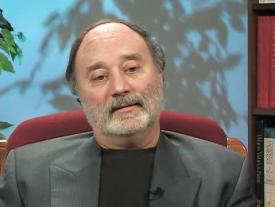Stunning truth
Joseph Tkach provides in his July 2010 letter a clear and concise summary of the stunning truth of the gospel of God's grace in Jesus Christ. With his permission, I've reproduced below the main body of his letter, and added hyperlinks to the Scripture passages that he references. Enjoy!
In the movie, “A Few Good Men,” Jack Nicholson plays the role of Colonel Nathan Jessup. Tom Cruise plays Lieutenant Lionel Kaffee, who intensely cross-examines the Colonel in a military trial. Exasperated, the Colonel finally shouts, “You want answers?”
Kaffee rejoins, “I want the truth!” And the Colonel famously responds, “You can’t handle the truth!”
The phrase jars us even as it resonates with John’s Gospel where Jesus declared, “You will know the truth, and the truth will set you free.”
And that is precisely the challenge: Truth can set us free—but we can’t always handle the truth! The truth is that in Jesus Christ we are already forgiven, reconciled and beloved of God (Colossians 1:20). But in our world of sin-scarred perceptions, we either do not know the truth, and all too often, even if we have heard the truth, we can’t handle it.
The truth is that God loves the whole world (John 3:16), that he sent his Son into the world not to condemn it, but to save it (John 3:17), and that in Christ, God was reconciling all things to himself (Colossians 1:20). The truth is that Jesus draws all people to himself (John 12:32), that everything is under his authority (Ephesians 1:10), and that he wants everyone to come to faith (2 Peter 3:9).
The truth is that Jesus Christ “is the atoning sacrifice for our sins, and not only for ours but also for the sins of the whole world” (1 John 2:2). The truth is that “God demonstrates his own love for us in this: While we were still sinners, Christ died for us” (Romans 5:8).
The truth is that God’s patience toward sinners is unlimited (1 Timothy 1:15-16). The truth is that God “wants all men to be saved and to come to a knowledge of the truth” (2 Timothy 2:4).
All this is how God reveals in the Scriptures his heart toward humanity. God made humans in his own image; they became sinners, alienated from him, and he, loving them intensely even in their sins (Romans 5:6-8), has forgiven and redeemed them through his Son. “If you have seen me, you have seen the Father,” Jesus said [see John 14:9].
When we know God the way he reveals himself, we can say with all assurance of joy, “Therefore, there is [now] no condemnation for those who are in Christ Jesus…” (Romans 8:1). “For God,” Paul wrote, “was pleased to have all his fullness dwell in him [Jesus], and through him to reconcile to himself all things, whether things on earth or things in heaven, by making peace through his blood, shed on the cross” (Colossians 1:19-20).
That includes everybody, even you and me.
In the doctrine of the Trinity, God has shown himself to be the God who loves the world and who beckons every person to come to Christ and take part in the joy of life in the household of God. There is no person whom God does not want, whom God does not include, whom God does not love.
In Christ, we are all freed from the chains of sin to come to the Father whose arms are open wide to receive us, if only we will. Christ has drawn all humans into himself, and in him they can share in his relationship with the Father as the Father’s beloved Son. In Christ, we can know and experience the Father for who he really is as our Creator, Deliverer, Redeemer, Father and Friend.
But to most of us, all that doesn’t make sense. It can’t make sense. It’s not fair. It lets evildoers off the hook. It makes a mockery of justice. It’s “soft on sin.”
We understand—we can handle—condemnation, punishment and retribution, but not carte blanche grace, mercy and forgiveness. We understand—we can handle—the kind of “truth” that condemns and punishes sinners, but we have a hard time with the kind of truth that forgives them and sets them free.
Until, that is, it affects someone we love. When it comes to someone we love, we can understand it; we can handle it. We long to see our loved ones forgiven and set free, if only they would also have a change of heart.
Well, God loves everybody, and he not only provides the forgiveness and freedom, he provides the new heart. He provides not only grace and mercy; he provides the righteousness of Christ.
That’s why the gospel is good news. It is the best and only hope for humanity. It is the best and only hope for you and me and everyone we care about. Human beings can never become righteous on their own. But God can, in Jesus Christ, forgive us, heal our minds, and make us righteous.
That is why we preach the gospel, calling on all people everywhere, as far as the Spirit gives us opportunity, to turn to Christ in faith so they can know him for who he really is and know themselves for who they really are in him.
